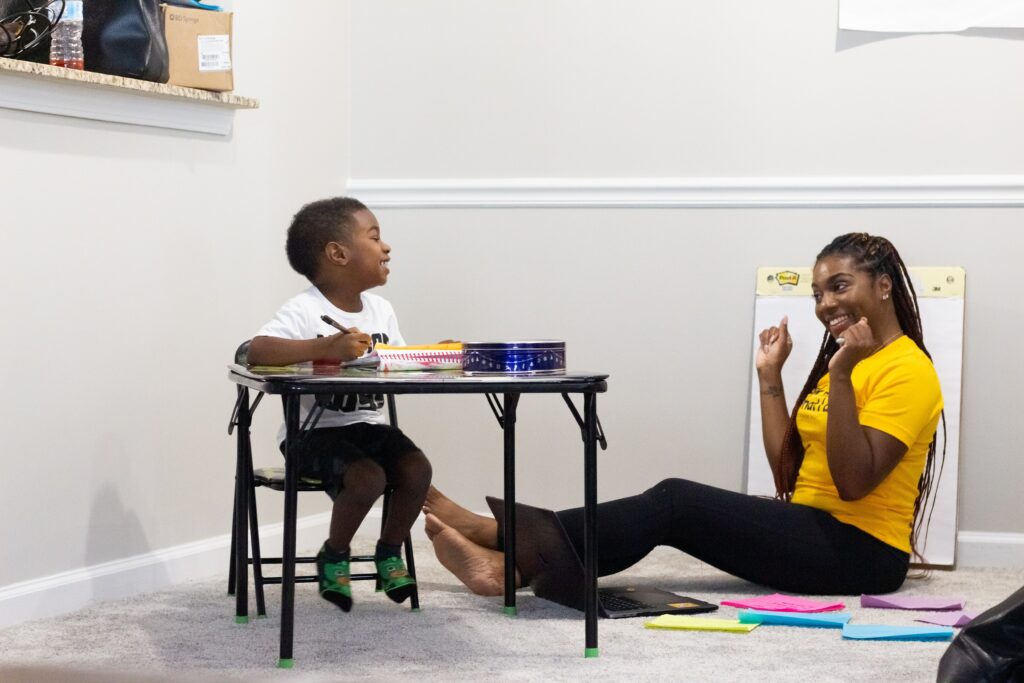Being diagnosed with Obsessive Compulsions Disorder can be confusing and scary for both kids and parents. According to the International OCD Foundation (IOCDF), about half a million children in the United States have OCD, which is making the disorder a common unwanted guest in many American homes.
Some of the common themes of childhood OCD include contamination fears, checking rituals, perfectionism, excessive “just right” or bedtime rituals, and “bad thoughts.” Exposure and Response Prevention (ERP) is the “gold standard” treatment for OCD. The treatment consists of engaging in exercises or “challenges” that gradually expose a child to the things or thoughts they are fearing while resisting engaging in safety behaviors or compulsions. Whew! Sounds like quite the undertaking for any adult, let alone a child. Even adults require motivators to do hard things. Through a child’s eyes, ERP can seem like an intimidating and aversive treatment- “You’re telling me I have to do what?!” For many children, having the “buy-in” to begin treatment can be a challenge. The use of incentives or rewards can be used effectively during the therapy process in order to raise kids’ motivation to engage in the exposures as well as feeling autonomous over the course of treatment.
Following are some guidelines when developing an incentive/reward program for ERP:
Education, education, education
First and foremost, educating the child about what OCD can look like is a powerful force to get the wheel of change turning. When children are empowered to understand that OCD is a harmless brain glitch that they do not have to listen to–and, in fact, can fight against–motivation can arise. Also, letting children know how common OCD is and that they are not alone can help alleviate their feelings of loneliness and challenge unhealthy stigmas.
Include the child as a stakeholder
A great way to begin talking about including incentives/rewards in treatment is to bring the child into the discussion from the beginning. All children are different; therefore, they all have different motivations. Allowing children to collaborate with parents and their therapist gives them considerable autonomy and shows them that they have a say and a sense of control in their own treatment… and that therapy can even involve some fun and games! Who wouldn’t have some fun with choosing their own personal reward system?
Choose a variety of rewards and make them work for your family
Children are all motivated by different things, and those things can also change over the time of treatment. It is important to create a variety of incentives and make those incentives fit into your family’s budget, capabilities and personal preferences. A great way to have a variety of rewards to choose from is to include different categories of rewards such as material, experience, privilege and social rewards. It is also very important that the rewards can be deliverable within an appropriate time frame after the child engages in the exposure. Another tip is to avoid using incentives that the child would normally receive as this may feel punitive if the goal isn’t met. For example, if a child has always watched TV for 30 minutes before bedtime, we wouldn’t want that to be the incentive since it is something the child normally receives. However, an incentive can be having additional TV time after completing the exposure.
Tracking incentives/rewards
Creating a system for tracking incentives and rewards can be a fun family project. In the beginning of therapy, it is beneficial for the child to be able to earn incentives/rewards frequently with the idea of spreading them out with time and more difficult exercises. With younger children a sticker chart can work very well. The child can also be involved in picking/making the chart as well as selecting the stickers. Remember to place the chart in a visible location such as on the fridge or in child’s room. It is important to be vigilant in filling in stickers as soon as the exposure or the “challenge” is completed. For older children using currency (hello Monopoly money), tokens, or “bravery tickets” are all great options.
Allowing for the occurrence of natural consequences
An added bonus of utilizing an incentive/reward system is that it allows the child to be in control of earning the incentive. On the flip side, it allows for natural consequences to occur when the child doesn’t engage in the exposure. This brings a key component of making a rewards system work- the incentive/reward occurs only after the agree-upon exposure or “challenge” is completed. If the child chooses not to engage in the agreed-upon exposure, the incentive does not occur. Learning will happen quickly here: do the hard thing, earn a desirable reward. Motivation to do the hard thing grows due to incentive, and repeated exposure leads to new learning and defeating OCD.
Final tip
As children progress through treatment, they are able to see that they are getting better at defeating OCD and therefore they will become more internally motivated. There will be a time in treatment where the incentive becomes the bonus and not the main reason for engaging in exposure work, especially since once engaging kids are very responsive to ERP treatment and can see progress fairly quickly. Think of a reward system as a jumpstart to the OCD recovery journey.

